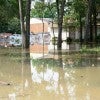

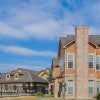
The Low-Income Housing Tax Credit program, explained
The Low-Income Housing Tax Credit (LIHTC) program is the largest federal initiative in the U.S. aimed at creating affordable rental housing, resulting in millions of units nationally, including tens of thousands in Harris County.
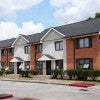
Underfunded and imperfect, vouchers are an important piece of Houston’s housing affordability
The Houston Housing Authority (HHA) serves about 19,000 households with housing choice vouchers. The Harris County Housing Authority (whose service area excludes Houston, Pasadena and Baytown) supports another 4,500 households with vouchers. Collectively, that is nearly 10 times as many households as are served by public housing, making the voucher program an important — if imperfect — way of providing affordable housing.

In Harris County, about 320,000 low-income households are housing cost burdened, paying more than 30% of their income toward rent. Given the low number of subsidized housing units and vouchers available in the county, this population is increasingly reliant upon “naturally occurring affordable housing,” or NOAH.
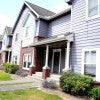
Public housing is effectively over in Houston. What comes next?
In September, the Houston Housing Authority announced it is ending public housing, following a national trend, as cities such as Chicago and Atlanta have also done so, with previously government-run developments being converted to federally subsidized but privately owned mixed-income communities with fewer affordable units.
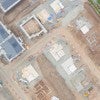
To build a better housing system in Houston, let’s start here
Houston has long been hailed as one of the country’s most affordable big cities, bucking national trends. But as the Kinder Institute and others have found, our affordability — and the economic opportunity that comes with it — could be slipping away.
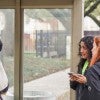
Advocates for the homeless set for Houston’s annual count with funding, plan of action in flux
Next week, over 400 volunteers with the Coalition for the Homeless of Houston/Harris County will conduct the annual point-in-time count to determine if homelessness is increasing or decreasing in the area.
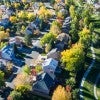
Partnership with Houston Housing Authority offers an opportunity to rethink ‘opportunity’
In late 2023, the Houston Housing Authority received a $5 million federal grant to help move some of its families to so-called “opportunity neighborhoods,” areas with low poverty, high-quality schools and other amenities.

How public pre-K sets Houston’s students on a path to success
In 2023-24, over 50,000 children attended public prekindergarten in the Houston area, bringing overall enrollment near to pre-pandemic levels.

Repairing a Houston home can lift a neighborhood, but help is needed amid limited funds
Regardless of natural disasters, homes fall into needing repair — be it because of the age of a dwelling, ability of its residents to perform maintenance, or even disuse. According to a Kinder Institute for Urban Research report, 60% of residents in the Houston area have needed a home repair in the past year.

With eviction rates high in Houston, tenants face a legal representation vacuum
The burden that the COVID-19 pandemic placed on renters helped lead to the founding of the Eviction Defense Coalition in March 2020. The member institutions, which operate in Harris County and Houston, continue to work in partnership while also arriving at similar but separate conclusions about the state of evictions in Houston.

Could parks be a panacea for what ails Houston? Here’s what the research says
During the height of the COVID-19 pandemic, urban parks and greenspace provided welcome respite and recreation when people had to spend a lot of time indoors. That renewed appreciation for parks confirmed what many researchers have been pointing out for decades: They provide cities huge benefits for public health, the environment and the economy.

Harris County has more FEMA-designated ‘disaster resilience zones’ than anywhere else
The Federal Emergency Management Agency this month began designating certain communities at high risk for natural disasters as “disaster resilience zones,” and Harris County — with 14 — has more than any other county in the United States.

Highways, flooding and sprawl: How Houston could have a bigger say in the region's future
Back in 2021, the Houston region's governing council offered up a final resolution of support for the contentious I-45 expansion project. The measure passed 14-11, with suburban members narrowly outvoting those representing Houston and Harris County. The vote marked an episode of stark division and intense scrutiny for the Houston-Galveston Area Council (H-GAC). It also raised questions about regional governance and how the Houston area’s urban and suburban populations should be represented.
Physical Address
Rice University
Kraft Hall
6100 Main Street, Suite 305
Houston, TX 77005-1892
